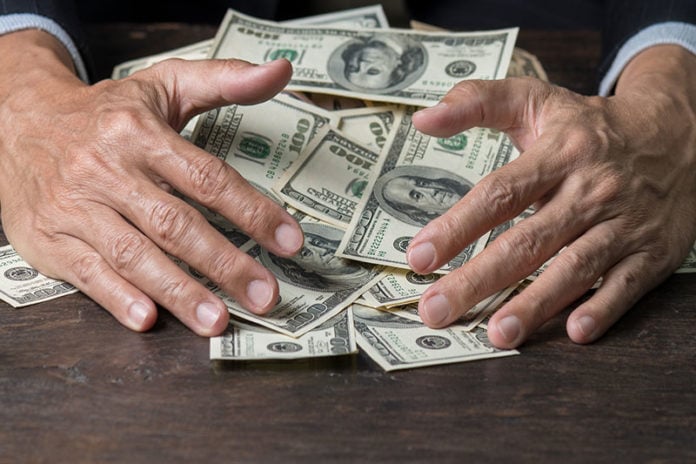The Supreme Court ruled on Wednesday in a case that could finally shake up the public sector unions that have been leeching off our country for decades.
The justices struck down an Illinois law that had required non-union workers to pay fees that go to collective bargaining. The court also overturned a 1977 law that required employees to pay what are called “fair share” fees.
The ruling was 5-4 along the typical lines. Justice Samuel Alito wrote for the majority.
“It is hard to estimate how many billions of dollars have been taken from nonmembers and transferred to public-sector unions in violation of the First Amendment. Those unconstitutional exactions cannot be allowed to continue indefinitely,” Alito wrote.
However, the leftoid justices saw things differently. In her dissent, Justice Elena Kagan wrote, “The First Amendment was meant for better things. It was meant not to undermine but to protect democratic governance — including over the role of public-sector unions.”
Of course, if you had ever read the Bill of Rights (and it’s doubtful that Elena Kagan has) you would understand that the First Amendment exists to protect the speech of Americans, and prevent compelled speech. Having money stolen from your paycheck to support an organization that is advocating for things you emphatically disagree with is compelled speech of the worst kind.
But don’t try telling that to Elena Kagan, I guess.
Kagan actually read her dissent from the bench, which is effectively a massive legal diss, and something a justice only does when they believe a ruling is completely wrong. Kagan added: “There’s no sugarcoating today’s opinion.”
Leftist analysts are already bemoaning this smashing win for conservatives. CNN’s Supreme Court analyst Steve Vladeck whined yesterday that this decision “will likely have ramifications at the ballot box.”
Vladeck continued by saying that this ruling will “weaken the economic health — and political power — of public-sector unions, which tend to support Democratic candidates more often than Republicans.”
I say: good! It’s about damn time somebody did something about public sector unions.
Unions in general are, economically speaking, good for their members but bad for the economy more generally. Some estimates suggest that unions have an effect on our economy similar to a 33% increase in the corporate tax rate.
And public sector unions are the least accountable and most useless of all unions. At least a union carpenter or a union welder could maybe be said to be better trained than the illegal immigrant laborers he’s competing with. A member of the teachers’ union or the liquor-store employees union, however, has no choice but to be a part of the union. Since there is no competition in these sectors, these unions cannot even be said to improve performance or provide better training.
All they do is skim profit from the paychecks of their members.
At the center of the debate in this case is a 1977 Supreme Court Opinion, Abood v. Detroit Board of Education.
The Abood ruling said that while non-members of public sector unions can’t be forced to pay fees for a union’s political activities, they can be required to pay so-called “fair share” fees pertaining to issues such as employee grievances, physical safety and training.
But money is a fungible asset, and there was very little to stop unions from using the money they skimmed from non-members to pay for political advocacy anyway.
In recent years, there’s been increasing pressure to overturn Abood. Nearly half of all states have laws on the books that allow broad fair share fees for public employees. After this Supreme Court ruling, that number is expected to drop
The public sector unions argue that they are required by law to represent all employees regardless of if they are members and that no one is required to join the union. (This is, of course, complete bullshit. If you are legally required to pay money to the union and you supposedly “benefit” from the union’s representation, you have effectively joined the union whether you wanted to or not.)
The unions say that letting non-members get away without paying fees for collective bargaining obligations will make them free riders. If non-members are benefitting from the work the unions are doing, but aren’t paying any fees, then the unions will suffer.
The argument was that as long as you were going to have to pay either way, it made more sense to join the union than to stay a non-member. Now that workers may still gain some benefit without needing to join, and by not-joining they can avoid the fees, union reps worry their enrollment will slide.
And yet, there’s something inherently perverse about the idea of charging somebody for a service they never asked for. The unions are effectively running a giant protection-money scam. They are allegedly providing services first and asking payment later.
But many employees may not want or even agree with the representation the unions offer them. And they should not be legally required to support the activities of unions. This ruling is blow to union funding, yes. But it’s a major win for the freedom of the American worker.



























